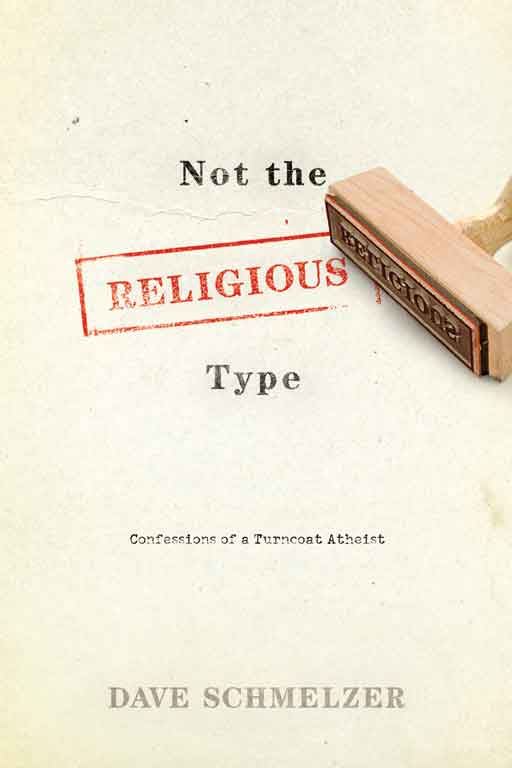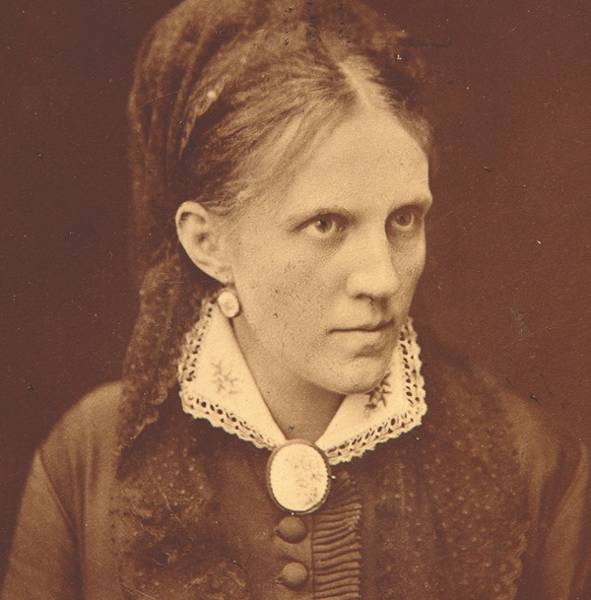
2006 was the Year of New Atheism, and it brought in its wake a flood of anti-atheist sentiment, the most interesting manifestation of which was a steady trickle of memoirs by former atheists and secularists repenting of their ways and proclaiming their new belief in God. The reaction of the atheist community to these works was largely dismissive, and indeed there is much in them that doesn't bear close scrutiny. However, they have something crucially important and often disturbing to say about how we secularists treat our own that we can’t afford to ignore, as non-belief comes into fruition not only as an intellectual position but as a lifestyle and source of community.
The most common type of story we see is that of the atheist turning desperately towards theism as a way to improve his or her self-image. In this vein are Alicia Chole’s Finding an Unseen God (2009) and Dave Schmelzer’s Not the Religious Type (2008). These are, by and large, the same book, and there is much we can learn from that very identity of life story. In both memoirs, the authors start off with an over-inflated sense of their own creative and intellectual gifts. Chole describes herself as a “disciplined” student always looking for a good debate, a girl who locks herself in the bathroom with books so that she can be alone within (and this is her phrase) The Sanctuary of Her Mind. Schmelzer grows his hair long and wears oversized sunglasses to ape his favourite authors as he dreams of becoming a great and monetarily successful writer.
Then things start going wrong as the world shows itself less dazzled by their gifts than they expected. Chole’s prose positively seethes with resentment at the lack of recognition from her teachers. They never quite give her what she thinks she deserves, and her attempts to translate her despair into poetry similarly founder, driving her into the arms of a community with slightly lower expectations – the partiers and drinkers. But then an encounter with a drink that proves too delicious (she won’t say what, I and my cocktail shaker are disappointed to report) scares her into a life of teetotalling, and so she must search for a group with even lower expectations, finding just that in a pair of hyper-Christians who see her as every bit as brilliant and creative as she considers herself to be. Since her atheism previously consisted, as far as she reports it to us, of the usual Why Does God Let Bad Things Happen... argument, it doesn't take much to toss it aside in favour of a community that allows her to keep her exaggerated self-conception with a promise of divine love to boot.
Similarly, when Schmelzer reaches college, he sees his grades plummet in a story familiar to many who were tops in their high school only to find that college brings an entirely different level of expectation. In subsequent years, his attempts to make a living as a playwright continually run aground. In the midst of his despair he begins praying and is able to convince himself that his internal monologues during these prayer sessions are actually dialogues with the divine. Not only that, but God is telling him that he is the hero in a grand adventure about to unfold – that he is the Frodo (his analogy) of what is to come. The idea makes him Feel Good where the few arguments that hold up his notion of atheism don’t, and soon he constructs a life philosophy based around the validity of these conversations.
And there they both stay – rationalising their choices in similar ways that exude that particular form of double-think unique to the fragile and frustrated psyches of third-tier intellectuals. Chole, almost immediately after a section bemoaning those who replace “truth” with “feelings” when choosing a life philosophy, offers her own four-point system of why she believes in Christianity, two of which amount to “It makes me feel good and makes other people feel good”. Schmelzer gives himself over entirely to the feeling of security he gets from his unending personal conversations with God, culminating in one of the book’s most ghoulish sections.
He tells of standing by the bed of his daughter, who is suffering from a potentially fatal heart problem, and describes Joy as the core of the entire experience because, in the midst of it all, he had some top-notch God conversations. Again and again in his memoir, he comes back to how deeply satisfying that experience was, and how grateful he is to those who prayed for his daughter’s recovery.
Not once does he thank the doctors or the nurses who worked for a year to save his daughter’s life. We never even hear their names. This is telling – to salvage his own sense of identity he constructed a divinity of impeccable solidity who had him and his concerns always at heart. From that moment on, maintaining that relation became the alpha and omega of his life to the point that actual people disappear, their efforts accounted as nothing next to those prayers that he believes help him on his journey towards Better God Chats.
There is much to be learned here about how we treat our own. In no sense were either of these people profound atheists – charitably, we can say that they left their versions of atheism at an early age, so we shouldn't expect too much depth from their recollections of it. But they were people willing to take a risk on something that offers only sober reality as a shield against the facts of death and suffering, and we somehow let them down. How do we stop this from happening to the new generations of non-believers now tentatively pushing themselves forward?
A good deal of the work has already been done. Thirty years ago, when Chole and Schmelzer were struggling with their identity, there was no such thing as an Atheist Community. Isolated individuals, perhaps, but nothing to compare with the current internet presence of humanists or the string of student alliances dotting the country. That craving for community and acceptance that drove both of these people into the arms of Christianity is now something that can be satisfied within the bounds of non-belief. It is heartening to see these student alliances not merely resting content with their role as stand-alone philosophical clubs, but engaging in charitable work in their communities, offering the chance to help others without having to join a primarily religious organisation to do it. It falls on us to do everything we can to foster and encourage this public-spiritedness, to give the coming humanists not only a place to gather and people to talk to, but something to do beyond arguing. For my generation and those before me, the choice was be Christian or be alone, and that is somewhat wonderfully no longer the case, nor will it ever be again.
But.
Atheism is a harsh mistress. For centuries, being horrendously outnumbered and fundamentally powerless in society, atheists had only one thing to sustain them – the rigid rigour of their argumentation, the pure force of their ideas and minds. Anything less than perfection in logic and consistency couldn't be tolerated, because it was the only thing we had going for us. So our most pointed invective was often aimed at each other, and anybody who wasn't quite up to snuff tended to get cast overboard as hindering the fragile ship of non-belief. When the Choles and Schmelzers came our way, we could be cruel and dismissive, and their writings show that they felt it.
Is the answer, then, simply to chill out a bit, to relax the rigour of our mutual analysis and let everybody believe what they will? Not quite, but, to see why, we need to take a look at another memoir by a former atheist who took a distinctly different path.
While Schmelzer and Chole left atheism for reasons of self-image and happiness, Francis Collins departed for reasons of what he felt to be intellectual consistency. His The Language of God (2006), while not strictly a memoir, does begin by laying out his reasons for leaving the atheism that had been with him up through college. A successful student of biology and medicine, raised in a family that encouraged open thought and personal growth, Collins could afford to approach the question of atheism from the point of view of argumentation without being weighed down or influenced by overriding psychological considerations. He read around, came to a copy of C.S. Lewis’s Mere Christianity, and was converted. The persuasiveness of Lewis’s rather pedestrian Moral Law argument entirely won him over to the idea that God manifests himself through humanity in ways that exist outside of natural space and time.
After Lewis, each argument that made a leap from “We don’t know yet” to “It’s the Judaeo-Christian God who did it!” became increasingly easy to swallow, and his dedication to fishing out alternative explanations increasingly less pronounced. We see this in his treatment of Freud, where he claims that Freud’s idea of God as a paternal substitute can’t be true, because the Biblical God is often harsh, and not a being of “benevolent coddling and indulgence”. I don’t know about you, but coddling and indulgent are pretty close to the last two things I think of when I consider Freud’s portrait of paternal constructs, and I wonder just how deeply Collins must have thought about Freud and his arguments to have come to this conclusion.
Similarly, when evaluating Lewis’s claim that agape, or selfless altruism, is a uniquely human trait that makes no sense evolutionarily and must therefore be of divine origin, Collins allows himself to skip merrily over three decades of primatology that speak overwhelmingly to the contrary (by the by, for a charming account of this body of work check out Frans de Waal’s recent The Bonobo and the Atheist, though it’s probably best to jump ahead when he starts going on about his unfortunate theories about what atheism is and where it comes from). And what a fateful skipping that becomes – because once you too blithely admit a qualitative difference between animal and human morality that can only be bridged by God’s plan, it becomes very easy to believe that life itself had to have a divine source, that there is a yawning chasm between life and non-life that can’t be spanned scientifically. And once Collins was willing to place God in that particular gap, it was easy to start using God as the universal answer for anything that hasn't been completely explained at this particular moment in human history. Since science hasn't yet come up with a conclusive answer to what happened before the Big Bang, why not put God in there too?
Had he started with considering the Big Bang instead of taking a morality-first perspective, I think even Collins would recognise that the God answer is the positing of an overly specific solution to a problem of unknown dimension. I think of it like two friends walking along and suddenly coming upon a hole 100 feet deep and 300 feet wide.
“What do you think is supposed to go in there?” the first says.
“It’s for a 1982 vintage Boba Fett action figure,” the other assures him.
“Well, that’s one thing that could go there,” the first begins.
“No, that’s what goes there,” the other interrupts. “It’s my favourite thing, so that’s what goes in the hole.”
There is a hole in our data of what happened before the Big Bang – we’re working on it, but it’ll probably take a while. But that doesn't mean we get to just plug in our favourite answer and call it a day. The data that we have prior to the event are non-existent – there is literally nothing in our hands. Choosing a definitive answer, particularly one as specific as the concept of God, with that amount of data to go on is reckless bordering on maniacal. I think Collins would have recognised it as such had he not come to this argument after having already made so many concessions to the moral law argument he decided must be true. Ignoring well-known studies of primate morality for no good philosophical reason allowed God a wedge into humanity and thence cosmology. After all of those forced moves, Collins had no choice but to declare himself a theist.
As much as it would help us nurture and support the psyches of people like Chole and Schmelzer, then, I have to say that the damage done by forgoing rigour is far worse than the benefit gained. I think we could stand to be a good deal more pleasant about it – and once we realise and honestly believe that the world is not going to imminently destroy us for our heresy any more, we should be able to unclench a bit and take steps towards making ourselves generally less assy on the world stage and with each other. Guided by the cautionary tales of Chole and Schmelzer, Collins and that other prominent atheist apostate Anthony Flew (whose memoir shares many of the faults of the others, but which I decided not to include in the light of blogger Richard Carrier’s persuasive argument that Flew didn't, in fact, write it himself), we can build a community of humanists who support each other and contribute substantially to the life and well-being of the world while remaining engaged in the meticulous intellectual work that will keep us from falling for an emotional argument in philosophical clothing.
This piece is from the July/August 2013 issue of New Humanist. Subscribe

